Tips for employers to improve employee moral & retention in 2024
1. Implementing Pay Transparency to Build Trust
Explanation:
- Why It Matters: Pay transparency involves openly sharing salary ranges and compensation policies with employees. This practice can build trust, reduce wage gaps, and increase employee satisfaction.
- Benefits: Helps address pay inequities, fosters a culture of openness, and can improve employee retention.
Tips:
- Conduct a Compensation Audit: Review current salaries to identify and correct disparities.
- Communicate Clearly: Explain how pay is determined and provide salary ranges for positions.
- Provide Training: Educate managers on discussing compensation with their teams.
2. Addressing Pay Equity and Inclusivity
Explanation:
- Why It Matters: Ensuring equal pay for equal work regardless of gender, race, or other factors is crucial for employee morale and legal compliance.
- Benefits: Enhances company reputation, reduces turnover, and promotes diversity.
Tips:
- Regular Pay Audits: Schedule routine checks to ensure equitable compensation.
- Transparent Policies: Develop clear criteria for raises and promotions.
- Inclusive Culture: Foster an environment where diversity is valued and discrimination is addressed promptly.
3. Offering Creative Non-Monetary Benefits
Explanation:
- Why It Matters: Non-monetary benefits can significantly impact employee satisfaction without increasing payroll expenses.
- Benefits: Improves work-life balance, enhances job satisfaction, and can be tailored to individual needs.
Tips:
- Flexible Work Schedules: Offer remote work options or flexible hours.
- Extra Vacation Days: Provide additional time off as a reward for achievements.
- Wellness Programs: Implement initiatives that support physical and mental health.
4. Recognizing Employees Through Professional Development Opportunities
Explanation:
- Why It Matters: Investing in employees' growth shows that the company values their future.
- Benefits: Increases loyalty, improves skills within the company, and fills talent gaps.
Tips:
- Tuition Reimbursement: Assist with costs for courses related to their field.
- Workshops and Seminars: Provide access to industry conferences or in-house training.
- Mentorship Programs: Pair less experienced employees with seasoned professionals.
5. Empowering Employees with Autonomy and Trust
Explanation:
- Why It Matters: Allowing employees to take ownership of their work can boost motivation and job satisfaction.
- Benefits: Encourages innovation, reduces micromanagement, and builds trust.
Tips:
- Set Clear Goals: Define objectives but let employees decide how to achieve them.
- Encourage Decision-Making: Allow team members to make choices within their roles.
- Provide Support: Be available for guidance without overstepping.
6. Encouraging Innovation and Recognizing Creative Efforts
Explanation:
- Why It Matters: Recognizing creative problem-solving can lead to breakthroughs and keeps employees engaged.
- Benefits: Fosters a culture of innovation, improves processes, and can give the company a competitive edge.
Tips:
- Idea Submission Platforms: Create channels for employees to share suggestions.
- Innovation Challenges: Host contests with rewards for creative solutions.
- Public Recognition: Highlight innovative ideas in company communications.
7. Implementing Mentorship and Coaching Programs
Explanation:
- Why It Matters: Mentorship supports professional growth and can enhance job satisfaction.
- Benefits: Builds stronger relationships, facilitates knowledge transfer, and improves retention.
Tips:
- Pairing Process: Match mentors and mentees based on goals and expertise.
- Set Expectations: Define roles and objectives for the mentorship.
- Monitor Progress: Check in regularly to ensure the relationship is beneficial.
8. Prioritizing Mental Health and Well-being
Explanation:
- Why It Matters: Supporting mental health is crucial for employee productivity and overall happiness.
- Benefits: Reduces absenteeism, improves morale, and fosters a supportive work environment.
Tips:
- Mental Health Days: Allow employees to take time off to recharge.
- Resources and Support: Provide access to counseling services or wellness apps.
- Stress Reduction Workshops: Offer training on stress management techniques.
9. Promoting Diversity and Inclusion in Recognition
Explanation:
- Why It Matters: Inclusive recognition ensures all employees feel valued and respected.
- Benefits: Enhances team cohesion, reduces biases, and attracts diverse talent.
Tips:
- Culturally Aware Celebrations: Recognize various cultural holidays and events.
- Inclusive Language: Use neutral language in communications and recognition.
- Diverse Committees: Involve employees from different backgrounds in planning recognition events.
10. Recognizing Remote and Hybrid Employees Effectively
Explanation:
- Why It Matters: Remote workers can feel isolated or overlooked in recognition programs.
- Benefits: Keeps all team members engaged, reduces feelings of isolation, and maintains productivity.
Tips:
- Virtual Recognition Events: Host online ceremonies or shout-outs.
- Personalized Gifts: Send care packages or handwritten notes.
- Regular Check-ins: Ensure remote employees have opportunities to share achievements.
11. Utilizing Gamification to Boost Engagement
Explanation:
- Why It Matters: Gamification introduces game elements into work, making tasks more engaging.
- Benefits: Increases motivation, encourages friendly competition, and enhances productivity.
Tips:
- Point Systems: Award points for completing tasks or reaching goals.
- Leaderboards: Display progress to foster competition.
- Rewards: Offer badges, levels, or tangible rewards for achievements.
12. Implementing Flexible Benefits Programs
Explanation:
- Why It Matters: Allowing employees to choose benefits that suit their needs increases satisfaction.
- Benefits: Accommodates diverse preferences, improves retention, and enhances employer branding.
Tips:
- Benefit Credits: Provide a set amount that employees can allocate to preferred benefits.
- Variety of Options: Include health plans, gym memberships, childcare support, etc.
- Regular Surveys: Gather feedback to adjust offerings based on employee needs.
13. Providing Leadership Training for Effective Recognition
Explanation:
- Why It Matters: Leaders play a key role in recognizing employees; training ensures they do it effectively.
- Benefits: Enhances manager-employee relationships, improves team performance, and fosters a positive culture.
Tips:
- Workshops: Offer training on communication, emotional intelligence, and recognition techniques.
- Coaching Sessions: Provide one-on-one coaching for leaders.
- Performance Metrics: Include recognition efforts in leadership evaluations.
14. Establishing Feedback Loops and Active Listening
Explanation:
- Why It Matters: Regular feedback ensures employees feel heard and valued.
- Benefits: Identifies areas for improvement, increases engagement, and builds trust.
Tips:
- Anonymous Surveys: Use tools to collect honest feedback.
- Suggestion Boxes: Provide physical or digital options for ideas.
- Action Plans: Respond to feedback with concrete actions and updates.
15. Offering Financial Wellness Programs
Explanation:
- Why It Matters: Financial stress can impact employee performance; providing resources helps alleviate this.
- Benefits: Enhances well-being, increases loyalty, and reduces stress-related issues.
Tips:
- Workshops: Host sessions on budgeting, saving, and investing.
- Counseling Services: Provide access to financial advisors.
- Educational Materials: Share articles, webinars, or newsletters on financial topics.
16. Recognizing Team Achievements and Collaborative Efforts
Explanation:
- Why It Matters: Acknowledging team successes promotes collaboration and unity.
- Benefits: Improves teamwork, fosters a supportive culture, and enhances project outcomes.
Tips:
- Team Awards: Celebrate group accomplishments with awards or events.
- Shared Goals: Set and recognize collective objectives.
- Highlight Stories: Share team success stories in company communications.
17. Encouraging Corporate Volunteering and Social Impact Initiatives
Explanation:
- Why It Matters: Involving employees in community service enhances purpose and fulfillment.
- Benefits: Builds company reputation, improves morale, and fosters team bonding.
Tips:
- Volunteer Days: Organize events where employees can volunteer together.
- Charity Partnerships: Collaborate with organizations aligned with company values.
- Recognition: Acknowledge participants' efforts internally and externally.
18. Celebrating Employee Milestones and Anniversaries
Explanation:
- Why It Matters: Recognizing tenure shows appreciation for loyalty and commitment.
- Benefits: Enhances employee satisfaction, reduces turnover, and strengthens relationships.
Tips:
- Personalized Gifts: Offer tokens of appreciation on anniversaries.
- Public Acknowledgment: Highlight milestones in meetings or newsletters.
- Extra Benefits: Provide additional time off or privileges.
19. Implementing 360-Degree Feedback Systems
Explanation:
- Why It Matters: Gathering feedback from all directions provides a comprehensive view of performance.
- Benefits: Encourages personal development, improves communication, and identifies strengths and weaknesses.
Tips:
- Structured Process: Use standardized questionnaires for consistency.
- Safe Environment: Ensure confidentiality to promote honesty.
- Development Plans: Use feedback to create personalized growth strategies.
20. Promoting Environmental and Sustainability Initiatives
Explanation:
- Why It Matters: Engaging employees in eco-friendly practices meets growing environmental concerns.
- Benefits: Increases employee pride, attracts eco-conscious talent, and contributes to corporate responsibility.
Tips:
- Green Teams: Form groups focused on sustainability projects.
- Incentives: Reward employees for eco-friendly actions.
- Education: Provide information on sustainability practices.
21. Addressing Workplace Stress and Preventing Burnout
Explanation:
- Why It Matters: Proactively managing stress improves health and productivity.
- Benefits: Reduces absenteeism, enhances job satisfaction, and promotes a healthy work environment.
Tips:
- Workload Management: Monitor and adjust workloads to prevent overburdening.
- Relaxation Spaces: Create areas where employees can unwind.
- Wellness Programs: Offer activities like yoga, meditation, or fitness classes.
22. Creating a Recognition Committee or Task Force
Explanation:
- Why It Matters: A dedicated team ensures that recognition efforts are continuous and effective.
- Benefits: Brings diverse perspectives, increases employee involvement, and improves program success.
Tips:
- Inclusive Membership: Include representatives from various departments and levels.
- Regular Meetings: Schedule consistent times to plan and review recognition activities.
- Clear Objectives: Define goals and responsibilities for the committee.
23. Encouraging Cross-Departmental Collaboration and Recognition
Explanation:
- Why It Matters: Breaking down silos enhances innovation and efficiency.
- Benefits: Improves communication, fosters learning, and creates a unified company culture.
Tips:
- Joint Projects: Initiate collaborations between different teams.
- Recognition Events: Celebrate cross-departmental achievements.
- Knowledge Sharing Sessions: Host presentations or workshops led by different departments.
24. Providing Transparent Career Pathways and Advancement Opportunities
Explanation:
- Why It Matters: Clear advancement paths motivate employees to grow within the company.
- Benefits: Increases retention, aligns personal goals with company objectives, and identifies future leaders.
Tips:
- Career Mapping: Work with employees to outline potential growth trajectories.
- Skill Development Plans: Identify and support necessary training for advancement.
- Regular Reviews: Discuss progress and adjust plans as needed.
25. Celebrating Cultural and Personal Events
Explanation:
- Why It Matters: Acknowledging personal and cultural events shows respect and appreciation for diversity.
- Benefits: Enhances inclusion, strengthens relationships, and enriches company culture.
Tips:
- Flexible Scheduling: Allow time off for important cultural or religious events.
- Office Celebrations: Organize events recognizing various holidays and traditions.
- Personal Milestones: Celebrate events like birthdays, weddings, or new additions to the family.
These ideas can provide fresh perspectives and practical solutions for employers struggling with recognition, pay, and acknowledgment of their employees in 2024. By implementing these strategies, you can create a more engaged, satisfied, and productive workforce.
If you need assistance in bringing these ideas to life, consider exploring recognition solutions with Olive Branch Awards. We offer personalized awards and programs tailored to your company's needs, helping you show genuine appreciation for your team's hard work.

